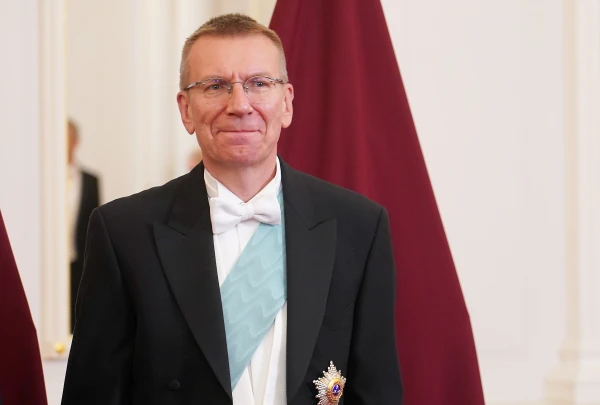
The President of Latvia, Edgars Rinkēvičs, has chosen the only possible and best course of action regarding the Istanbul Convention at this time and has well justified his position, stated constitutional law expert, senior legal advisor of the Financial Sector Association Edgars Pastars in an interview on the program "900 seconds" (TV3), writes LETA.
In his opinion, the best approach is to reassess this issue rather than to "escalate the situation," for example, by announcing the law and filing a lawsuit.
The lawyer suggested that the president made the decision so quickly to put an end to unnecessary and unconstructive discussions.
He called the proposal to pass the decision on this issue to the next Saeima interesting and quite logical. He acknowledged that he only remembers one such case regarding laws returned for reconsideration 16 years ago.
According to him, lawyers, including himself, believe that a referendum on this issue is entirely impossible. Although he did not rule out that he had heard other opinions, in his view, it would be a very narrow and limited discussion. Pastars reminded that when he worked in the President's Chancellery, one of such laws was not sent to a referendum, arguing that it concerned the application of European Union law, and such issues are not subject to a popular vote. At that time, the Saeima took such a position, "rejecting 38 signatures." "So precedents have already existed," he said.
As Pastars noted, deputies often think they are the main ones and can decide everything, but in this case, this is not so. Although the Saeima is the leading institution in the system of separation of powers, the primary responsibility for international relations lies with the government, and in general, it is within its competence to conclude treaties with foreign states, he explained.
"And simply ignoring the government's opinion, not conducting additional analysis, not arguing — this cannot be done," Pastars explained, adding that the Constitutional Court regularly reminds that the Saeima has the right, but there is a "ellipsis on how to do this, and in this case, that ellipsis was not observed."
Pastars highly appreciated the president's argument that the law replacing the Istanbul Convention has not yet been adopted, therefore its immediate denunciation is actually unacceptable. Also, in his opinion, the president's argument that ratification and denunciation of the convention within one Saeima session sends a contradictory signal is logical.
He also explained that now the Saeima can freely decide when to reconsider this law. If at least one amendment is made to the law, the president can return it for reconsideration again, but if there are no amendments and the Saeima approves the law, then the president will have to proclaim it, he clarified.
At the same time, after this, nothing limits the president from appealing to the Constitutional Court. He can also initiate a referendum if he decides that he can appropriately interpret Article 73 of the Satversme, Pastars noted.
"I hope that the Saeima will understand — a deeper dialogue with the president and the government is necessary," he concluded.
As previously reported, on Monday afternoon, the President of Latvia announced that he returned to the Saeima for reconsideration the law on Latvia's exit from the Council of Europe Convention on Preventing and Combating Violence Against Women and Domestic Violence — the so-called Istanbul Convention.
In addition, the president calls for passing the decision on this issue to the next Saeima. The next parliamentary elections will take place in the fall of 2026.
"Essentially, this issue should be resolved by the next Saeima. We had discussions with representatives of political parties as well as with representatives of non-governmental organizations. I hope that the Saeima will listen to my arguments, reconsider this decision, and take into account the aspects mentioned in the request for reconsideration," the president said at a press conference at the Riga Castle.
The president expressed confidence that the most democratic solution would be to allow political parties to clearly state their position on this issue in the next elections, and for the new Saeima to evaluate it. He reported that consultations had also taken place in recent days with representatives of political parties and the ombudsman. In the president's opinion, both supporters and opponents of the convention are ready to seek a solution and compromise.
Justifying his decision, Rinkēvičs points out that important questions remain unanswered after the final adoption of the law, which the legislator should reconsider, and that is why a reconsideration of the law is necessary.
He emphasizes that serious concern arises from the contradiction between the legislative and executive branches regarding an issue where the legislator clearly transferred substantial competence to the executive branch but did not adequately assess the position of the executive branch expressed within this competence.
"In the system of separation of powers, mutual dialogue and cooperation are extremely important for achieving common state goals," the president's letter states.
The president also emphasizes that ratification and denunciation of the convention within one Saeima session sends a contradictory signal both to Latvian society and to international allies regarding Latvia's readiness to fulfill its international obligations in good faith.
The president points out that Latvia's actions to exit any Council of Europe convention aimed at protecting human rights are unprecedented in the legal space of Europe. Such a precedent goes far beyond Latvia's domestic legal issues and may threaten the overall architecture of the rule of law in Europe, the president believes.
It should also be noted that Latvia will become the first European Union member state to exit an international human rights treaty, Rinkēvičs notes. Therefore, it is necessary to seriously assess whether such actions are compatible with the principle of sincere cooperation enshrined in the EU Treaty and the obligation of EU member states to provide each other with sincere assistance in fulfilling the tasks of achieving the EU's goals, including gender equality mentioned in Article 2 of the EU Treaty, the president emphasizes.
According to Rinkēvičs, a similarly contradictory signal is sent by the Saeima's decision to exit the convention even before the deadline set by the Saeima itself for the Cabinet of Ministers to develop a comprehensive "Law on Preventing and Eradicating Violence Against Women, Children, Domestic Violence, and Violence in General." The president emphasizes that this creates a dangerous gap in the full legal regulation in the field of combating violence against women and domestic violence, which contradicts the repeatedly publicly voiced argument that Latvia's national legislation fully provides such protection.
This legal gap — from the moment the international treaty loses its legal force until the moment a comprehensive national legal regulation with at least comparable coverage is developed — will create unacceptable legal uncertainty, the president emphasizes.
As the president emphasizes, there is no doubt that the Saeima, under certain conditions and with proper preparation, can make a decision to exit an international treaty in the established manner. "Unfortunately, it must be stated that the necessary preparation was not conducted for such an exit to be properly justified," Rinkēvičs points out.
The law was adopted last week by votes from the opposition and the Union of Greens and Farmers (UGF).
The draft law was submitted by the opposition party "Latvia First" (LPV), and it was also supported by other opposition parties — the National Alliance, the "United List" (OS), and "Stability," as well as politicians from the ruling coalition from the UGF. The ruling parties "New Unity" (NE) and "Progressives" opposed the exit from the convention.
As many non-governmental organizations as well as the NE and "Progressives" parties previously urged the president not to proclaim this law and to return it to the Saeima for reconsideration.
Meanwhile, on the platform ManaBalss.lv, a petition calling on the president not to proclaim this law was signed by more than 65,000 people in less than four days. At the same time, a petition submitted to the Saeima calling for continued participation in the convention managed to collect at least 33,700 signatures.
Last Wednesday, a protest against exiting the convention gathered about 5,000 people in front of the Saeima building, becoming one of the largest in recent years. New protests are expected in Latvia and abroad this week.
At the same time, a picket in support of the denunciation of the convention, which took place last Thursday near the parliament, gathered about 20 people. In recent days, the collection of signatures for an initiative started back in 2016 against Latvia's accession to the convention has also intensified. Over nearly a decade, it has gathered just over 33,900 signatures. A new initiative began collecting signatures on November 2, calling on Rinkēvičs to proclaim the law on exiting the Istanbul Convention. So far, it has managed to collect just over 5,700 signatures.
Most experts and non-governmental organizations working in the field of violence prevention oppose the idea of exiting the convention, expressing concerns that this will weaken the protection of victims of violence and negatively affect Latvia's international image in the eyes of Western allies.
In Latvia, the Council of Europe Convention on Preventing and Combating Violence Against Women and Domestic Violence, or the so-called Istanbul Convention, came into force on May 1 of last year. This international agreement obliges participating countries to develop a coordinated policy aimed at better protecting women from all forms of violence, as well as women and men from domestic violence. In particular, participating states must provide comprehensive assistance and protection to victims: crisis centers, a 24-hour helpline, specialized support centers for victims of sexual violence, as well as protection and support for children who have witnessed violence.

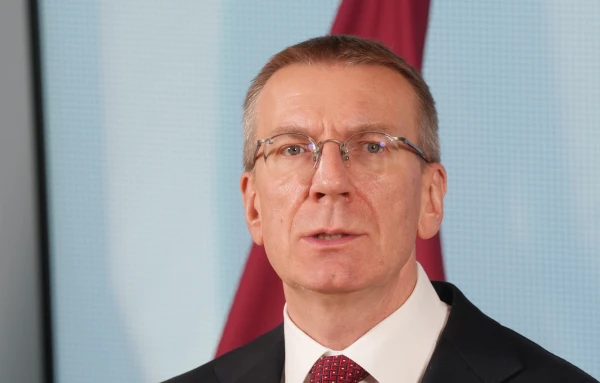
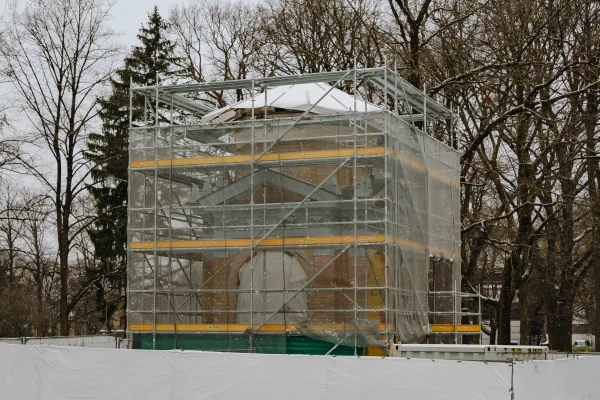


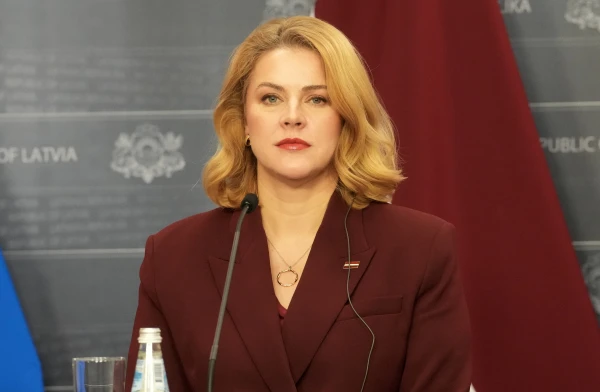
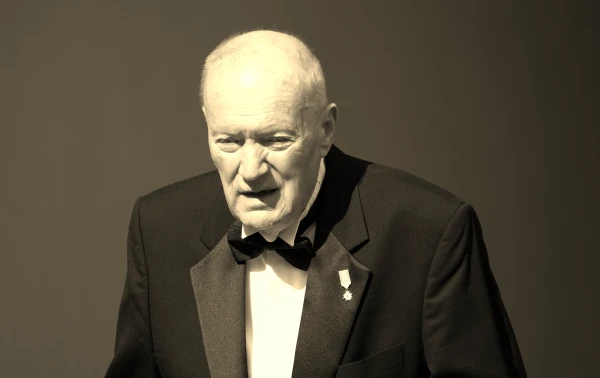
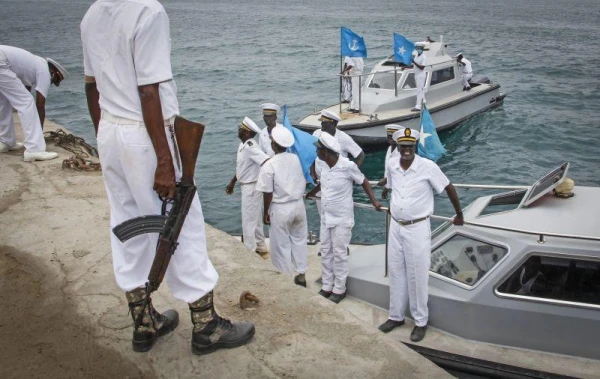




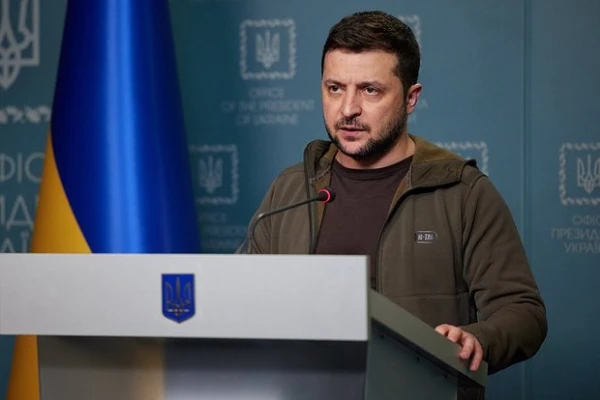
Leave a comment